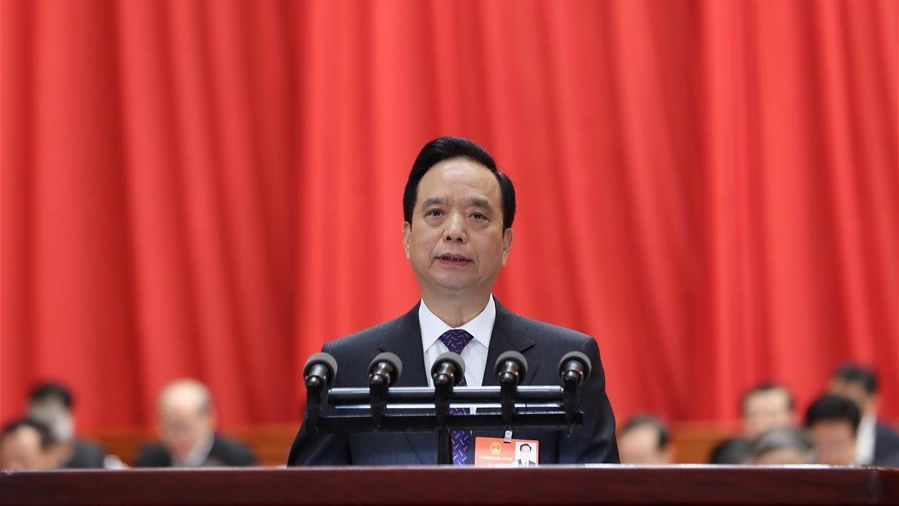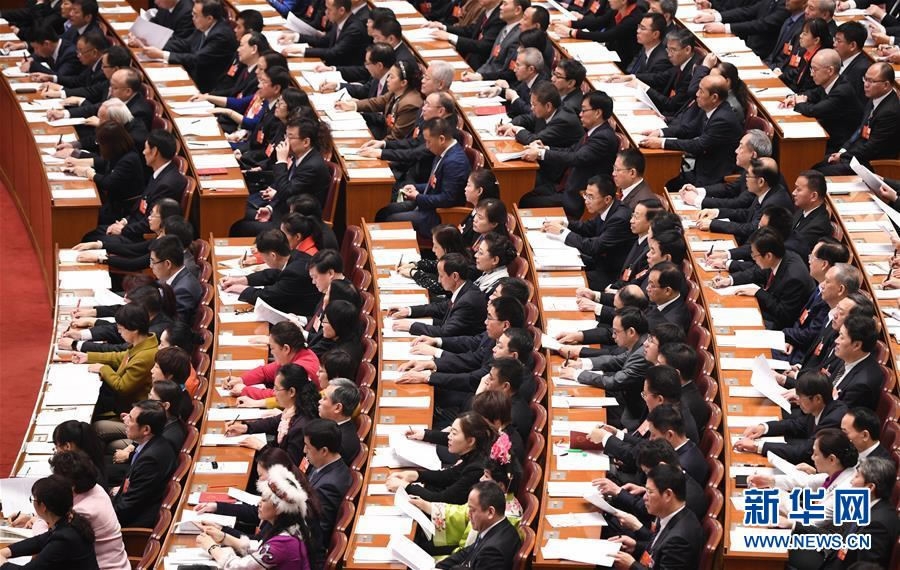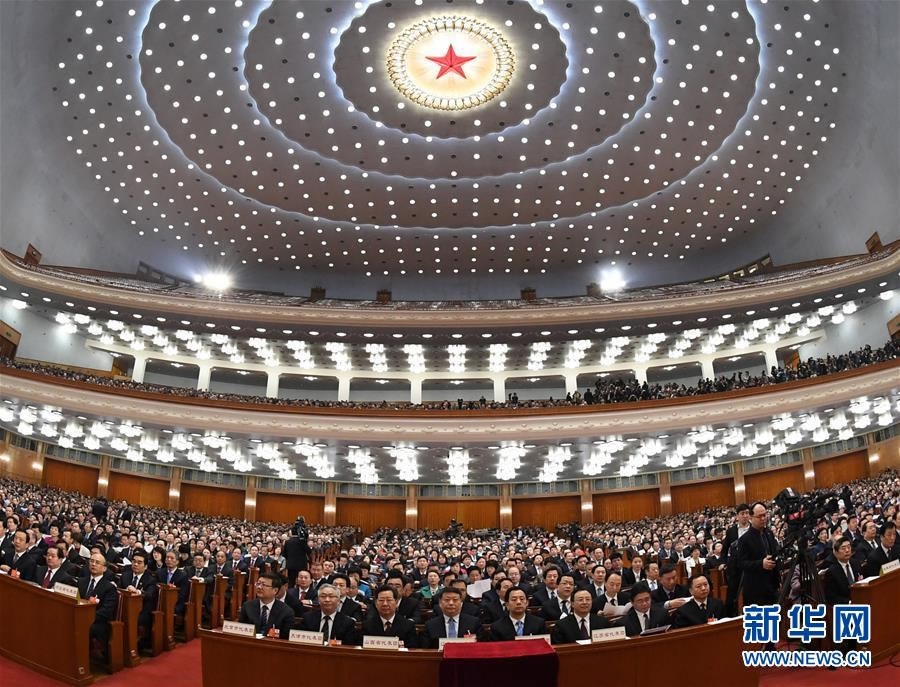
Politics
09:25, 13-Mar-2018
All you need to know about China's draft supervision law
CGTN

China's draft supervision law was submitted for its third reading at the national legislature Tuesday, aiming at a centralized, unified, authoritative and efficient supervisory network under the leadership of the Communist Party of China (CPC).
The new law, an essential part of China's reform of supervisory institutions, is expected to serve as a fundamental and guiding law against corruption and for state supervision, said Li Jianguo, vice chairman of the Standing Committee of the 12th National People's Congress (NPC), when elaborating the draft to the first session of the 13th NPC.
The law is aimed at enhancing the leadership of the CPC on anti-corruption campaign, Li said.
According to the draft, new supervisory commissions will be established at the national, provincial, city and county levels. Tasked to handle job-related crimes, they will independently exercise supervisory power, and not be subject to interference from the government, social organizations and individuals.

Xinhua Photo
Xinhua Photo
The commissions are entrusted to oversee state functionaries, investigate corruption cases such as bribery, embezzlement and abuse of power, impose administrative penalty on corrupt officials, and hand over criminal cases to prosecutors, according to the bill.
"In face of a tough and complicated situation, our existing supervisory institutions were clearly unable to meet the demands of the battle against corruption and the campaign to clean up the Party," Li said.
Under the old supervisory system, the Party disciplinary networks oversaw all Party members and the administrative supervisory agencies governed civil servants, which left a considerable number of state functionaries unsupervised.
The supervisory power was also divided among three agencies, with the Party disciplinary agencies regulating Party members according to Party rules, administrative supervisory agencies watching civil servants according to the administrative supervision law, and procuratorates prosecuting state functionaries suspected of corruption according to the criminal procedure law.
"The agencies, with their power divided and overlapping, did not function in harmony," Li said, adding that procuratorates, which not only investigate but also prosecute, were not under effective supervision.
Under the reform, supervision, corruption control and prevention divisions under the government and procuratorates are merged, pooling anti-graft resources together.
The new law also aims to legalize a unified system between state supervision and Party disciplinary inspection.
Since 80 percent of civil servants and 95 percent of leading officials are Party members, the tasks of Party internal inspection and state supervision highly overlap, requiring a more unified supervisory system, Li said.

Xinhua Photo
Xinhua Photo
New supervisory commissions will share staff and offices with the Party disciplinary inspection agencies.
The draft law has incorporated practices of the pilot reform of supervisory system, which began in Beijing, Shanxi and Zhejiang in December 2016, and then was expanded nationwide in November 2017, Li said.
Among the new practices in the pilot reform, a new detention system has been tested to replace the practice of "shuang gui," an intra-party disciplinary practice, exercised by Party disciplinary officials, where a Party member under investigation must cooperate with questioning at a set time and place.
"Replacing 'shuang gui' with rigorously-regulated detention will help settle a long-lingering legal problem," Li said. "This has displayed our resolve and confidence to realize a full law-based governance."
As of now, supervisory commissions have been founded at the provincial, city and county levels across the country.
Source(s): Xinhua News Agency

SITEMAP
Copyright © 2018 CGTN. Beijing ICP prepared NO.16065310-3
Copyright © 2018 CGTN. Beijing ICP prepared NO.16065310-3